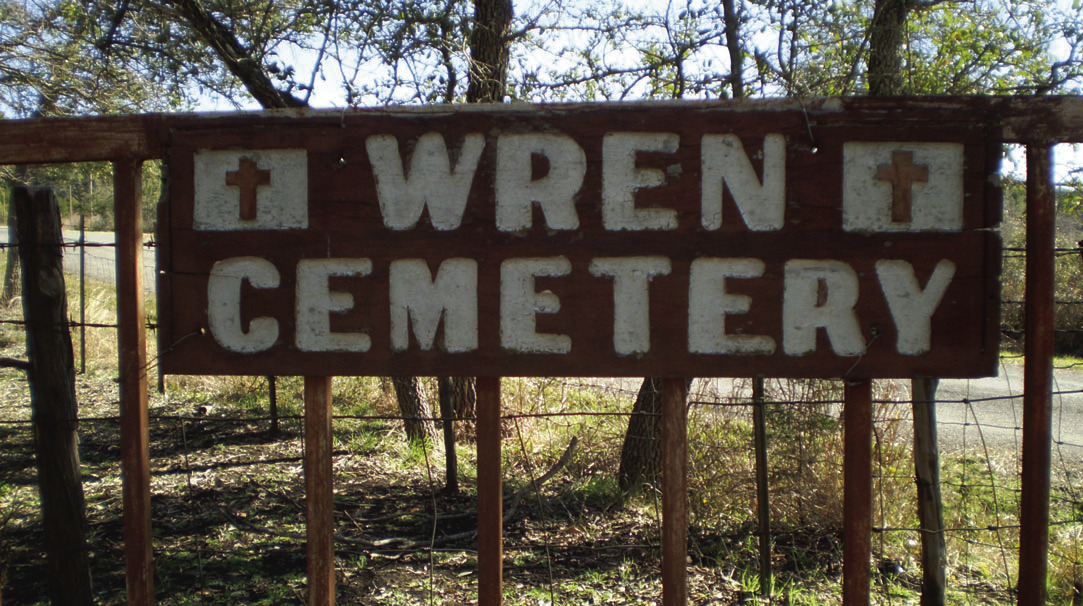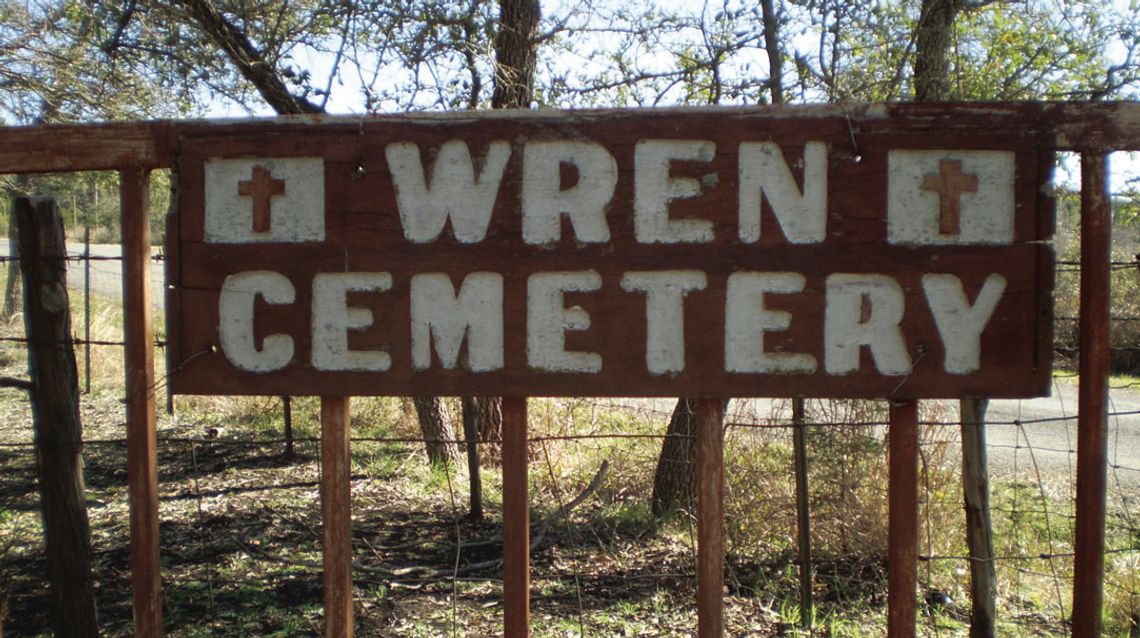Cemetery for Civil War-era slaves to receive historical marker
There is a cemetery in the Spring Creek region where the tombstones’ surnames read Brown, City, Davis, Hemphill, Street, Washington, Warren, Wilson, and Wren, among two dozen others -- names indicating this cemetery was not dedicated to early German immigrants.
Although not German, some of the individuals interred at the Wren Cemetery on Spring Creek Road were early pioneers, present even before Kendall County was established in 1862.
What makes them unique is that the same year Kendall County was organized, some were listed on deceased minister Daniel Rawls’ 1862 probate records -- yet 23-year-old Alex Wren and 7-year-old Emanuel Hemphill weren’t designated as recipients of his estate, they were listed as assets. They were enslaved African Americans.

The sign outside Wren Cemetery, where a Texas Historical Commission marker will be placed during an Oct. 28 ceremony. Courtesy photo
The Kendall County Historical Commission Oct. 28 will unveil a Texas Historical Commission (THC) marker for the post-Civil War Wren Cemetery.
Dedicated to African Americans, the cemetery opens a back story to pre-Civil War and pre-Kendall County landowners who had migrated to Texas from southern states, bringing with them plantation practices, and slaves. Descendants of those buried in Wren Cemetery will assist with the unveiling, slated for 10 a.m. at the cemetery, 50 Spring Creek Road. The program and tour are free and open to the public.
John Benedict, who carries the THC designation of Texas archeology steward, will provide the backdrop on those pioneering African American families who lived in Kendall County and are interred in the Wren Cemetery.
He has invited Everett Fly, a noted regional historian and subject matter expert on African American landscapes, who will add additional historical context to this epic window of post-Civil War history.







Comment
Comments